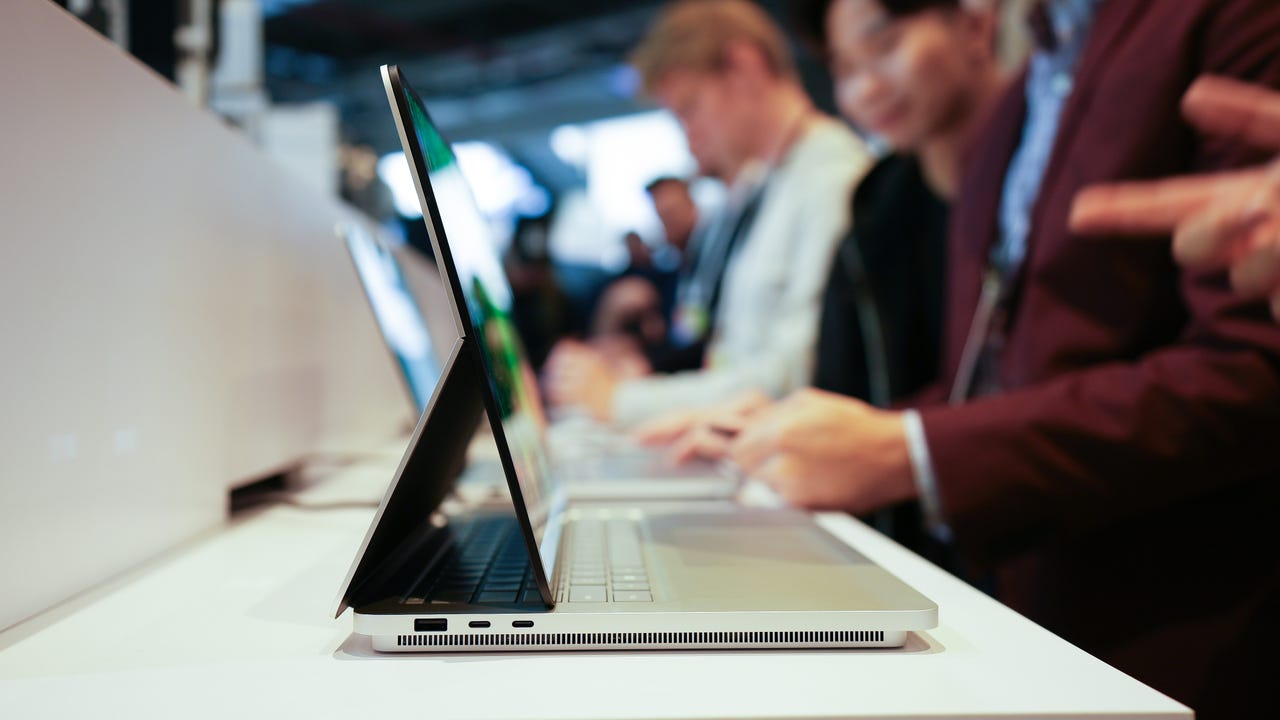Could Windows finally get ARM right and outperform Apple silicon?

When Microsoft unveiled its latest members of the Surface family in March, the most important news out of the event was what the company didn't talk about. The new Surface Pro 10 and Surface Laptop 6, powered by Intel processors, are being marketed and sold exclusively to business customers. Meanwhile, the more exciting models -- with Arm-based SoCs inside -- remained firmly under wraps.
At Windows Central, Zac Bowden found evidence that a new Surface Pro 10 running on an SoC from the new Snapdragon X family is being tested now. It's widely expected that several new Arm-based Surface machines will debut at a Microsoft event in Seattle on May 20. In addition to Microsoft's reveal, expect to see parallel announcements of new PCs using the latest Qualcomm chips from Lenovo and Samsung, among others.
Also: The best laptops you can buy: Expert tested
This week, Qualcomm officially announced the Snapdragon X Plus SoC, the entry-level alternative to the previously announced Snapdragon X Elite. And although Microsoft and Qualcomm have managed -- so far -- to keep a tight lid on leaks of the actual machines and corresponding benchmarks, they've also strategically shared accounts of their confidence that Windows on Arm is finally ready to take on Apple's powerful M-series processors.
Last year I wrote about Microsoft's efforts to move Windows to an Arm-based model, with an emphasis on "custom silicon to ... ensure the competitiveness of the entire Windows ecosystem and Surface hardware."
As I noted then, "If they're really serious about this custom silicon effort, they'd better pick up the pace." Unfortunately, Microsoft's historical reliance on investments and partnerships is a real handicap in terms of keeping up with Apple, which develops its own custom silicon for iPhones, iPads, and Macs in lockstep with the operating system developers.
Apple's approach ties the silicon and the operating system together in a way that allows them to optimize for performance and battery life without the need to pay a third-party chip supplier (like Qualcomm or Intel).
See also: Can Microsoft deliver a silicon surprise before year's end?
That's why Apple has been shipping third-generation Apple Silicon devices for months, while Microsoft is still yet to announce, much less ship, its first Surface devices built using custom silicon. (The current Arm-powered Surface devices are based on slightly customized versions of Qualcomm processors but can't really be considered "custom silicon.")
In early 2023, Qualcomm forecasted optimistically that it would ship devices based on the next-generation SoC, which was eventually branded as the Snapdragon X Elite, before the end of the year. That obviously didn't happen, which is why those new Arm-based Surface PCs are still just rumors. That delay has given Apple crucial months to sell its brand-new M3 MacBook Airs without the competition that the new Surface Pro 10 and Surface Laptop 6 might provide.
The biggest advantage of the Arm architecture, of course, is its power efficiency. Existing Arm-based Surface models are thin and light and get vastly better battery life than their Intel-based rivals, without generating heat and requiring fans. (My first-generation Surface Pro X, for example, averaged well over 8 hours of real-world battery usage per charge.) The trouble is those numbers are hours less than, say, a MacBook Air with an M2 or M3 processor. And Apple's laptops blow the doors off their current Surface rivals for more demanding tasks.
Also: M3 MacBook Air review: Apple's AI computer for the masses
Bowden's sources tell Windows Central that "these new chips will enable huge performance and efficiency gains over previous Surface Pro and Surface Laptop models." They'd better.
Meanwhile, someone at Microsoft told Tom Warren at The Verge that the company is "so confident in these new Qualcomm chips that it's planning a number of demos that will show how these processors will be faster than an M3 MacBook Air for CPU tasks,"
That's pretty bold talk, and longtime Microsoft watchers are understandably skeptical. But this is a make-or-break moment for Redmond. If Microsoft wants the market to take its new devices seriously, it has to deliver huge improvements in performance and battery life over its current models, and it has to be competitive with what Apple is shipping today.
Most importantly, those Surface devices have to be good enough to convince the two largest PC OEMs, HP and Dell, to begin the big shift to an Arm-based model and away from the classic Intel architecture.
It's no accident that these new devices are being touted as purpose-built for AI, with neural processing units that can shift demanding AI workloads away from the GPU, as well as a Copilot key that hops straight into Windows 11's AI features.
See also: What is an AI PC? (And should you buy one?)
At the end of 2023, it seemed like a sure bet that Microsoft would release Windows 12 this year. I think we'll probably still see preview releases before the end of 2024, but the official release might wait until next year. If so, that gives Apple another year to extend its lead in hardware and software.
